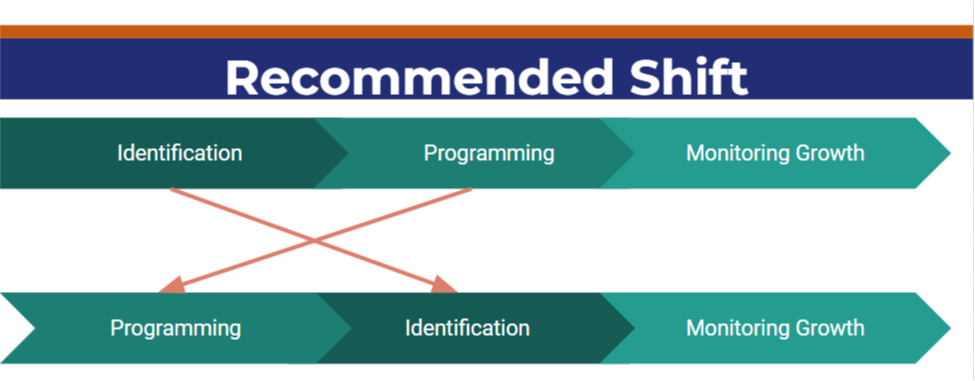Key Information
Talent Development Defined
With encouragement and support, a child's talents emerge from participating in experiences guided by teachers, parents, and others. Recognizing that talent generally emerges from experience helps reinforce the idea that our schools must provide students with a rich, invigorating environment. It is critical to not only expose students to engaging, complex material but to instruct them in higher-level skills, as well. We teach, we give students an opportunity to practice, and we observe how they interact with the content. In this way, we find kids we have often overlooked. (Wisconsin Department of Public Instruction)
Talent Development refers to all of the efforts made by the home, school, and community to recognize and nurture the many and varied strengths, talents, and sustained interests of many students. We view programming for talent development as a commitment by a school or a school district, its parents, and its community to create, support, and sustain many services through which educators, parents, and community leaders collaborate to seek, bring out, and nurture the strengths, talents, sustained interests and best potentials of their students. The goals and purposes of programming are broader and more powerful than the mere assigning of a single, fixed group of students to a single, fixed program. (The Talent Development Planning Handbook )
Implications for practice
A talent development approach represents a shift in thinking from what we may have done before. It reflects the ideas that potential and ability are dynamic and that gifted education should therefore be responsive and fluid. This approach really does make sense if we think about it. It moves us away from the idea that students are either gifted or not gifted, and from something we only determine at a certain age or grade. This outdated notion represents a static view of ability and ignores the reality that children develop at different rates. It results in determining that students are "in" or "out" of a gifted program. (Wisconsin Department of Public Instruction)

“Participating students are able to explore topics in many domains and to discover strengths that might otherwise have gone unaddressed. This is the heart of talent development: less emphasis on identification as a prerequisite for access to programming, shifting focus instead to offering opportunities for students to discover strengths in themselves which can then be cultivated.” (Grayson, referencing NU’s CTD, accessed Dec. 2022)
“However, the process of recognizing and developing talents should not be seen as a one-shot, one-time determination with tests and rating scales labeling students as "talented" or "untalented." Rather, it is a long-range process in which parents, school personnel, and the students themselves recognize, understand, and work together to facilitate the development of the students' unique talents” (Hoagies, emphasis added, Dec. 2022)
